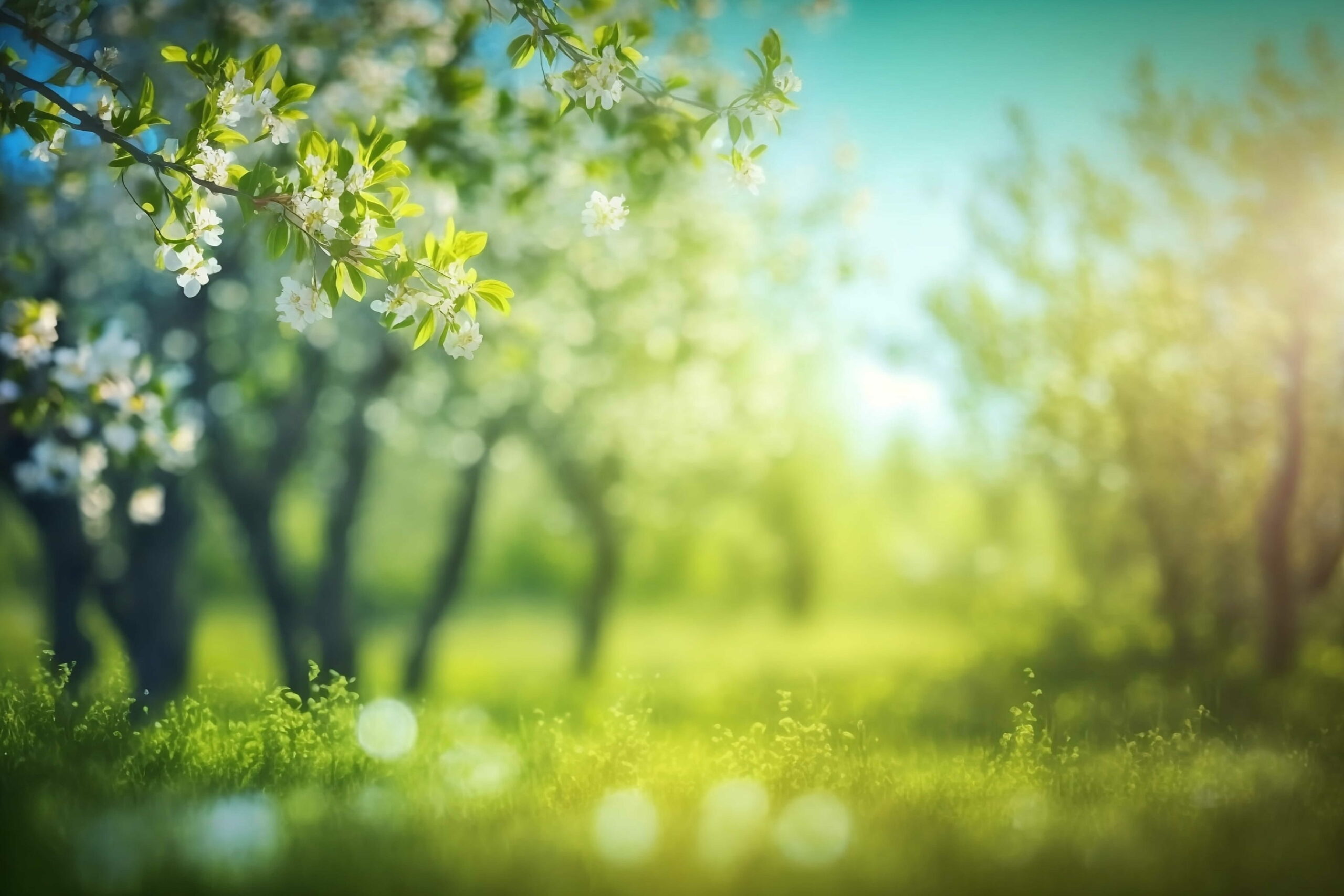Seasonal allergies, also known as hay fever or seasonal allergic rhinitis, affect millions of adults around the world. For some people, allergy season comes and goes quietly, but for others, it can feel like an endless cycle of sneezing, itchy eyes, and nasal congestion. Interestingly, many adults who never had allergies as children suddenly develop them later in life, while others who had mild symptoms before may notice them worsening with age.
So, what actually causes seasonal allergies in adults? Why do some people develop them out of nowhere? And is there a way to manage or even prevent them? Let’s explore these questions in detail.
Understanding Seasonal Allergies
Seasonal allergies happen when your immune system overreacts to harmless substances in the environment, such as pollen, mold spores, or grass. Normally, these particles wouldn’t cause any harm, but in people with allergies, the body mistakenly identifies them as dangerous invaders.
In response, the immune system releases chemicals such as histamine, which triggers common allergy symptoms like sneezing, runny nose, itchy eyes, and congestion. The “seasonal” part comes in because these allergens are more prevalent during specific times of the year, depending on the type of pollen or mold in your region.
- Spring allergies are usually caused by tree pollen.
- Summer allergies are often linked to grass pollen.
- Fall allergies are commonly triggered by weed pollen, like ragweed.
- Mold spores can be present year-round but tend to spike in warm, humid, or damp conditions.
Why Do Adults Develop Seasonal Allergies?
It may feel strange to suddenly develop allergies in your 30s, 40s, or even 50s if you’ve never had them before, but it’s actually quite common. There are several reasons why this happens:
1. Changes in the Immune System
Your immune system doesn’t remain the same throughout life. As you age, it can become either more reactive or less tolerant to environmental triggers. This change sometimes causes adults to suddenly develop seasonal allergies.
2. Environmental Exposure
Moving to a new location can expose you to pollen or plants you’ve never encountered before. For example, someone moving from a coastal city to a rural area might suddenly struggle with grass pollen allergies.
3. Cumulative Sensitization
Allergies can build up over time. You might have been exposed to small amounts of pollen for years without symptoms. Eventually, your immune system “decides” it has had enough, leading to noticeable allergic reactions in adulthood.
4. Genetics
Family history plays a big role. If one or both of your parents had seasonal allergies, there’s a higher chance you’ll develop them at some point, even if it happens later in life.
5. Hormonal Changes
Shifts in hormones—such as during pregnancy, menopause, or thyroid conditions—can influence the immune system, making allergies more likely to appear or worsen.
6. Weakened Immune Barriers
Factors like stress, poor sleep, or chronic illnesses can weaken your body’s natural defenses, making you more sensitive to allergens that never bothered you before.
Common Symptoms of Seasonal Allergies in Adults
While symptoms can vary from person to person, most adults with seasonal allergies experience:
- Sneezing fits
- Runny or stuffy nose
- Itchy, watery eyes
- Scratchy throat
- Fatigue or “brain fog”
- Headaches or sinus pressure
Some people also confuse allergies with colds or sinus infections because the symptoms overlap. The key difference is that allergies don’t cause fever and are triggered repeatedly by environmental exposure, not by viruses or bacteria.
Triggers of Seasonal Allergies
To better understand what causes seasonal allergies in adults, it helps to look closely at the main triggers:
| Season | Common Triggers | Examples |
|---|---|---|
| Spring | Tree pollen | Oak, birch, maple, cedar |
| Summer | Grass pollen | Bermuda grass, Timothy grass |
| Fall | Weed pollen | Ragweed, sagebrush |
| Year-round | Mold spores | Damp leaves, soil, basements |
Adults may react to one or multiple triggers. In fact, many people notice their symptoms peak during overlapping allergy seasons.
How to Manage Seasonal Allergies in Adults
Although allergies can’t always be cured, there are many strategies to reduce discomfort and improve quality of life.
1. Avoidance Strategies
- Check daily pollen forecasts and stay indoors when counts are high.
- Shower and change clothes after spending time outdoors.
- Keep windows closed during peak pollen season.
- Use air purifiers with HEPA filters.
2. Over-the-Counter Remedies
- Antihistamines (e.g., loratadine, cetirizine) help reduce sneezing, runny nose, and itching.
- Nasal corticosteroid sprays relieve congestion and inflammation.
- Eye drops can soothe itchy, watery eyes.
3. Prescription Treatments
If symptoms are severe, a doctor may prescribe stronger medications or recommend allergy shots (immunotherapy), which gradually train your immune system to be less reactive.
4. Natural and Lifestyle Approaches
- Saline nasal rinses to flush out pollen.
- Staying hydrated to thin mucus.
- Eating a nutrient-rich diet to support immune health.
- Practicing stress management (yoga, meditation), as stress can worsen allergy symptoms.
When to See a Doctor
Most seasonal allergies can be managed with lifestyle changes and over-the-counter medications. However, you should seek medical advice if:
- Your symptoms interfere with sleep, work, or daily life.
- You develop breathing difficulties or wheezing.
- You’re unsure whether your symptoms are allergies, asthma, or another condition.
Conclusion
Seasonal allergies in adults are caused by the immune system overreacting to common environmental triggers such as pollen and mold spores. While genetics, environment, hormonal shifts, and lifestyle factors all play a role in their development, the good news is that effective management options exist. By combining avoidance strategies, medications, and lifestyle adjustments, adults with seasonal allergies can greatly reduce their discomfort and reclaim their quality of life.
FAQs About Seasonal Allergies in Adults
1. Can you develop seasonal allergies later in life even if you never had them before?
Yes, it’s common for adults to develop allergies in their 20s, 30s, or even 50s due to changes in the immune system, new environmental exposures, or hormonal shifts.
2. How do I know if my symptoms are from allergies or a cold?
Allergies don’t cause fever and typically last longer than a cold. If symptoms worsen outdoors and improve indoors, it’s more likely allergies.
3. Do seasonal allergies ever go away on their own?
Sometimes. Allergies may fade if you move to a different environment or as your immune system changes with age, but for most people, they remain a recurring issue.
4. Can diet help reduce seasonal allergies?
A healthy diet rich in fruits, vegetables, omega-3 fatty acids, and antioxidants supports the immune system and may reduce inflammation, which can help ease allergy symptoms.
5. What’s the best time to take allergy medicine?
Taking antihistamines before exposure (such as in the morning during pollen season) is often more effective than waiting until after symptoms start.
Social Sharing
Your Content Goes Here
Latest Posts





